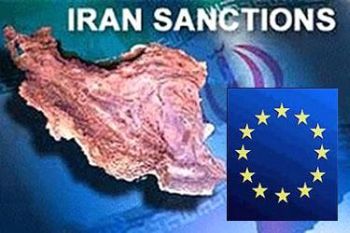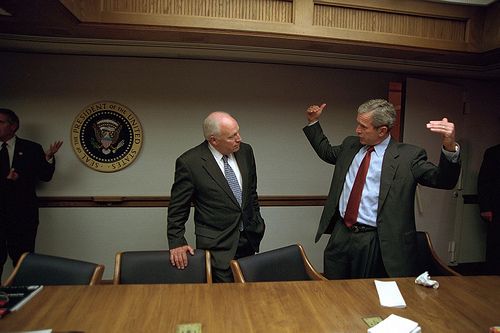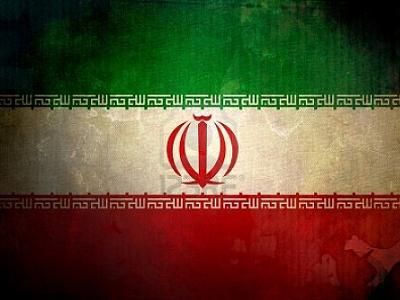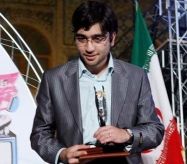
Publisher:
Bonnie King
CONTACT:
Newsroom@Salem-news.com
Advertising:
Adsales@Salem-news.com

~Truth~
~Justice~
~Peace~
TJP
Jul-14-2012 03:31

 TweetFollow @OregonNews
TweetFollow @OregonNews
Who is the Winner of Sanctions Game?
Kourosh Ziabari Salem-News.comPresident Bush and his successor who came to power with the flaunting and pompous slogan of "change" identically pursued a policy of antagonism with Iran.
 Courtesy: mojahedin.org |
(TEHRAN) - Less than a week ago, the European Union put into effect its comprehensive oil embargo against Iran upon which the member states had reached an agreement on January 23.
The EU's unilateral sanctions come after the United States targeted Iran with a set of sanctions against the country's Central Bank and a number of individuals and companies and threatened to penalize the foreign firms and banks which have financial transactions with Iranian counterparts.
The sanctions are not unprecedented and unexpected for the Iranians, as the United States began to cut off its economic deals with Iran since the Islamic Revolution of 1979 which toppled the Washington-backed Shah; however, what is new and surprising is that the United States and its European allies are extraordinarily intensifying the sanctions, tightening the noose around the ordinary Iranians who are unquestionably the innocent and silent victims of the West's vitriolic animosity with Iran.
Perhaps what the majority of people in different countries think about Iran's nuclear program which is the main cause of the West's hostility with Iran is inspired by the mainstream media's coverage of the developments in the country. After the painful 9/11 attacks which was followed by George W. Bush's initiation of the War on Terror plan, the corporate media began to disseminate and foster anti-Iranian sentiments as part of their agenda for demonizing the Muslims and Muslim-majority countries. Iran was dubbed as one of the elements of the so-called Axis of Evil by President Bush during his 2002 State of the Union address and a venomous media campaign against Iran was set in motion afterwards.
 |

Aggrandizing the shortcomings and internal problems, frequently accusing the country of violating human rights, propagating the idea that Iran has become an isolated and reclusive country and portraying a distorted and falsified image of Iranian people and their lifestyle constituted the core of Western mainstream media's coverage of Iran over the past years. Such a biased coverage laid the groundwork for the United States and its allies to put an excessive pressure on Iran, work to further isolate the country, adopt crippling sanctions against her and even drum-beat for a possible military invasion with the final objective of a regime change in Tehran.
President Bush and his successor who came to power with the flaunting and pompous slogan of "change" identically pursued a policy of antagonism with Iran and although the latter had vowed to take up reconciliation and détente with Iran, he exactly imitated what his predecessor has done.
On September 30, 2006, the U.S. Congress ratified the Iran Freedom and Support Act which allocated $10 million to anti-Iranian groups both inside and outside the country who were seeking to overthrow the Iranian government.
On May 27, 2007, Daily Telegraph quoted intelligence sources as reporting that President Bush had given the CIA approval to launch covert "black" operations to achieve regime change in Iran. According to the British paper, Bush had signed an official document endorsing CIA plans for a campaign of propaganda and disinformation intended to destabilize and eventually topple the Islamic Republic government.
 |

Bush's plan also included covert support for notorious terrorist gangs such as Jundallah and MKO which over the past years have carried out several terrorist operations across Iran, claiming the lives of tens of innocent civilians. The main goal of these cults is to sabotage Iran's security and pave the way for the United States and its allies to invade Iran and implement their perilous plans for the country.
According to an ABC News report published on May 22, 2007, some former officials in the Bush administration who spoke on the condition of anonymity revealed that the U.S. government had designed plans for manipulating the value of Iran's currency and damaging its international financial transactions.
They also unveiled that the U.S. government which has been involved in several regime change operations in such countries as Syria, Guatemala, Indonesia, Cuba, Dominican Republic, Greece, Chile, Argentina, Afghanistan, Turkey, Poland and Nicaragua since the World War I had authorized a $400 million covert operation to create unrest in Iran, especially following the 2009 presidential election in which the defeated candidates claimed that the results had been rigged.
At the same time, however, the leaders of the United States and the European states who imposed upon Iran a set of relentless biting sanctions hypocritically talk of friendship with the Iranian nation and state that they seek rapprochement and camaraderie with Iran.
 |
In his March 2009 videotaped message to the Iranian people on the occasion of Persian New Year (Nowrouz), the U.S. President Obama adored Persian culture, civilization, arts and literature and overtly cajoled Iranians with the aim of persuading them to confide in the United States and its policies vis-à-vis Iran: "In particular, I would like to speak directly to the people and leaders of the Islamic Republic of Iran. Nowruz is just one part of your great and celebrated culture. Over many centuries your art, your music, literature and innovation have made the world a better and more beautiful place… Here in the United States our own communities have been enhanced by the contributions of Iranian Americans. We know that you are a great civilization, and your accomplishments have earned the respect of the United States and the world."
Thereafter, he turned to the leaders of Iran to reach out to them directly: "we have serious differences that have grown over time. My administration is now committed to diplomacy that addresses the full range of issues before us, and to pursuing constructive ties among the United States, Iran and the international community. This process will not be advanced by threats. We seek instead engagement that is honest and grounded in mutual respect."
President Obama appreciated Iranian culture and talked of his commitment to diplomacy and negotiations with Iran; however, by the end of the same year, he authorized the renewal of the long-standing U.S. financial sanctions against Iran, provoking a wave of anger and disappointment among Iranians.
 |
In the following years, President Obama recorded similar videotaped messages on the occasion of Nowrouz, and despite the fact that his tone got unsympathetic over time, he still insisted on his being concerned for the Iranians and their "rights."

With regards to Iran, the Western politicians, including President Obama, seemingly follow a modus operandi of "divide and rule." They want to separate the Iranian government and people and pretend that they care for the interests of the Iranians, and at the same time, oppose the policies of the government; a government which they say has long repressed its own people, while the reality proves otherwise.
Now, the gist of Iran-West standoff can be expressed this way: the United States and its allies demand that Iran should give up its nuclear rights and make other concessions. Iran doesn't accept these demands, calling them illegitimate and beyond its liability. The West doesn't spare any effort to punish Iran: sanctions, assassination of its nuclear scientists, passing resolutions in the UN Security Council, psychological operations and other punitive measures. Iranians have firmly tolerated the pressures to show that they don't give in to bullying. The future is unclear and blurred; however, what is certain is that the ones who bear the burden of West's hostility toward Iran are the ordinary people.
The sanctions have targeted Iran's medical sector. Aside from the official data which show that many European countries have banned the shipment of different medicines to Iran, my personal observations prove that Iran is direly running out of sensitive medical products, including medicine for the psychological patients, those who suffer from various types of cancer, diabetes, hemophilia, thalassemia, multiple sclerosis and heart diseases. I've personally encountered patients who needed medicine from countries such as Canada and Belgium, but as a result of the sanctions, they couldn't find them. Aren't such diabolical sanctions contrary to the principles of human rights? Why don't those who preach human rights and democracy take the fact into consideration that banning the export of medicine to a country whose people are in dire need of such products is simply a collective punishment of the innocent civilians?
 |
Every year, tens of Iranian citizens are killed in painful air accidents, which is a direct result of the U.S.-engineered sanctions against Iran. According to the U.S. sanctions which were implemented almost 30 years ago, the European aviation companies are not allowed to sell aircrafts to Iran and the aging fleet of Iranian airlines cannot accommodate the growing demand of the people for safe and secure air travels. According to the chancellor of Amir Kabir University of Iran, the country needs at least 600 civilian aircrafts, but no country sells Iran such a huge number of aircrafts and the people always travel via Iranian airliners in an atmosphere of trepidation and anxiety.
Overall, what is clear is that the sanctions game started by the U.S. and its European allies has no winner. It simply blackens the image of the Western superpowers in the eye of Iranian people and makes them believe that the United States and its cronies cannot be ever trusted in.
 Kourosh Ziabari is an Iranian media correspondent, freelance journalist and the author of Book 7+1. He is a contributing writer for websites and magazines in the Netherlands, Canada, Italy, Hong Kong, Bulgaria, South Korea, Belgium, Germany, the U.K. and the U.S. He was once a member of Stony Brook University Publications’ editorial team and Media Left magazine’s contributing writer, as well as a contributing writer for Finland’s Award-winning Ovi Magazine.
Kourosh Ziabari is an Iranian media correspondent, freelance journalist and the author of Book 7+1. He is a contributing writer for websites and magazines in the Netherlands, Canada, Italy, Hong Kong, Bulgaria, South Korea, Belgium, Germany, the U.K. and the U.S. He was once a member of Stony Brook University Publications’ editorial team and Media Left magazine’s contributing writer, as well as a contributing writer for Finland’s Award-winning Ovi Magazine.
Kourosh Ziabari was named the winner of winners in the category of media activities at the National Organization of Youths festival. He was honored by the Iranian President Mahmoud Ahmadinejad, receiving the honorary mention signed by him and the silver medal of Iran's Superior Youth. The media activities category did not award the Gold and Bronze medal to any participant.
As a young Iranian journalist, Kourosh has been interviewed and quoted by several mainstream mediums, including BBC World Service, PBS Media Shift, the Media Line network, Deutsch Financial Times and L.A. Times. Currently, he works for the Foreign Policy Journal as a media correspondent. He is a member of Tlaxcala Translators Network for Linguistic Diversity and World Student Community for Sustainable Development. You can write to Kourosh Ziabari at: kziabari@gmail.com
 |
Articles for July 13, 2012 | Articles for July 14, 2012 | Articles for July 15, 2012

googlec507860f6901db00.html
Salem-News.com:



Terms of Service | Privacy Policy
All comments and messages are approved by people and self promotional links or unacceptable comments are denied.
[Return to Top]
©2025 Salem-News.com. All opinions expressed in this article are those of the author and do not necessarily reflect those of Salem-News.com.